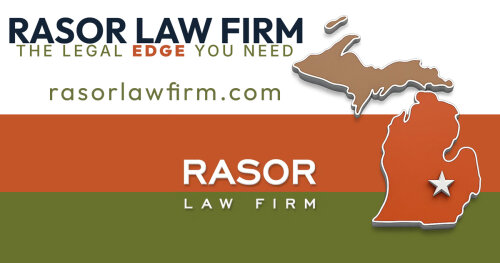Best Sexual Abuse Lawyers in Maryland
Share your needs with us, get contacted by law firms.
Free. Takes 2 min.
Or refine your search by selecting a city:
List of the best lawyers in Maryland, United States
About Sexual Abuse Law in Maryland, United States
Sexual abuse is a serious crime under Maryland law. It involves any unwanted sexual act, contact, or behavior imposed upon a person without their consent. In Maryland, sexual abuse can affect children, adults, and vulnerable individuals and often occurs within families, workplaces, institutions, or other personal relationships. State laws offer protection to survivors of all ages and set forth strict punishments for those found guilty. Additionally, Maryland has civil legal remedies that allow survivors to pursue compensation for harm suffered.
Why You May Need a Lawyer
A lawyer can provide invaluable help to individuals affected by sexual abuse in Maryland. Some common reasons to seek legal counsel include:
- Guidance when reporting sexual abuse to police or authorities
- Understanding your rights and legal options as a survivor or as someone accused
- Pursuing civil lawsuits against perpetrators or institutions responsible for allowing the abuse
- Navigating protective orders or restraining orders for safety
- Defending against false or unfounded allegations
- Accessing state and local resources for medical, psychological, and financial support
- Assistance for minors, elderly, or persons with disabilities who may need an advocate
Given the emotional difficulty and complexity of sexual abuse cases, legal support ensures your rights are protected and gives you the best chance at justice and recovery.
Local Laws Overview
Maryland law defines and penalizes a range of sexual crimes. Key points include:
- Sexual Offenses: Maryland law categorizes sexual crimes into various degrees such as rape and sexual offenses, with harsher penalties for more serious acts or when force, threat, or incapacitation is involved.
- Child Sexual Abuse: Maryland specifically addresses sexual abuse against minors. The law mandates certain professionals to report suspected child abuse and provides for criminal prosecution and civil liability.
- Statute of Limitations: The state has adjusted and, in some cases, removed deadlines for when survivors can file civil lawsuits. Specific rules apply depending on the survivor's age and the type of claim.
- Protective Orders: Survivors can request protective orders to keep abusers away. Violating these orders constitutes a separate crime.
- Mandatory Reporting: Teachers, medical personnel, and others are required by law to report suspected sexual abuse of children or vulnerable adults.
- Sex Offender Registry: Convicted offenders may be required to register with Maryland’s sex offender registry, which restricts certain activities and locations.
These laws are designed to protect survivors and hold offenders and enablers accountable. Navigating them often requires specialized legal knowledge.
Frequently Asked Questions
What is considered sexual abuse under Maryland law?
Sexual abuse includes a broad range of non-consensual sexual activities, such as unwanted touching, forced sexual acts, exploitation, and attempted acts. The law applies to acts against both children and adults.
How do I report sexual abuse in Maryland?
Contact local law enforcement or Child Protective Services if the victim is a minor. In emergencies, dial 911. For non-emergencies, you may file a police report or speak with a local advocacy group for guidance.
Can I file a civil lawsuit against my abuser?
Yes, Maryland law allows survivors to sue perpetrators for damages. Institutions that allowed the abuse to occur may also be held liable. Statute of limitations rules can impact your ability to file, but recent changes in law have expanded options for many survivors.
How long do I have to file a sexual abuse claim?
Time limits depend on the type of case and the victim’s age. Recent legal changes have extended deadlines, especially for childhood sexual abuse, but it is best to consult an attorney for the most current information.
Will my case be kept confidential?
Law enforcement and courts often work to protect the privacy of survivors, especially minors. However, certain records may become public as the case proceeds. Discuss confidentiality issues with your lawyer.
Are there free or low-cost legal services available?
Yes, Maryland has several organizations and legal aid services that assist sexual abuse survivors regardless of income. Victims may also be eligible for state-funded resources.
What support is available for survivors besides legal assistance?
Maryland offers victim support programs, counseling, medical care, crisis hotlines, and advocacy services. These can help with recovery beyond the legal process.
What penalties do offenders face in Maryland?
Penalties range from fines and probation to lengthy prison sentences and lifetime registration on the sex offender registry, depending on the offense's severity.
What is a protective order and how do I get one?
A protective order is a legal document that directs the abuser to stay away from the victim. Survivors can request these orders through the local court or with law enforcement’s help.
What happens if someone files a false sexual abuse claim?
Filing a knowingly false report is a crime in Maryland and subject to prosecution. However, law enforcement and the courts treat all reports seriously and investigate thoroughly.
Additional Resources
Several organizations and agencies offer help for those affected by sexual abuse in Maryland:
- Maryland Coalition Against Sexual Assault (MCASA): Offers support, advocacy, and legal referrals.
- Maryland Office of the Attorney General - Victim Assistance Program: Provides information on rights and compensation.
- Child Protective Services (CPS) through the Maryland Department of Human Services: For reporting and support in cases involving children.
- Local law enforcement agencies: For criminal investigations and protective orders.
- Legal Aid Bureau of Maryland: Offers free or reduced-fee legal services.
- Rape, Abuse and Incest National Network (RAINN): National hotline and referral network for survivors.
- Local crisis centers: Many Maryland counties have community-based support services specific to sexual assault and abuse.
Next Steps
If you or someone you know has experienced sexual abuse in Maryland, consider taking the following steps:
- Ensure immediate safety and seek medical attention if needed.
- Report the abuse to appropriate authorities, especially if a minor is involved.
- Contact a local advocacy organization for support and counseling.
- Document any evidence or details of the abuse to share with authorities or legal counsel.
- Consult with a qualified attorney experienced in sexual abuse law in Maryland to understand your legal options and rights.
- If cost is a concern, reach out to legal aid organizations listed above.
Remember, you are not alone, and help is available. Legal professionals can guide you through the process to help ensure your safety, dignity, and justice under Maryland law.
Lawzana helps you find the best lawyers and law firms in Maryland through a curated and pre-screened list of qualified legal professionals. Our platform offers rankings and detailed profiles of attorneys and law firms, allowing you to compare based on practice areas, including Sexual Abuse, experience, and client feedback.
Each profile includes a description of the firm's areas of practice, client reviews, team members and partners, year of establishment, spoken languages, office locations, contact information, social media presence, and any published articles or resources. Most firms on our platform speak English and are experienced in both local and international legal matters.
Get a quote from top-rated law firms in Maryland, United States — quickly, securely, and without unnecessary hassle.
Disclaimer:
The information provided on this page is for general informational purposes only and does not constitute legal advice. While we strive to ensure the accuracy and relevance of the content, legal information may change over time, and interpretations of the law can vary. You should always consult with a qualified legal professional for advice specific to your situation.
We disclaim all liability for actions taken or not taken based on the content of this page. If you believe any information is incorrect or outdated, please contact us, and we will review and update it where appropriate.
Browse sexual abuse law firms by city in Maryland
Refine your search by selecting a city.















